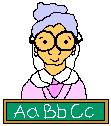| ESE502 : The Class : Structure : Rewards | |||||
Rewards and Privileges
Rewards and privileges provide motivation to students. How are they different?Privileges are those things that come with membership. Students are members of the learning community, so there are certain activities that are a natural result of that membership.
| Sample Privileges | ||
| Primary Activity centers Use craft materials Art center, easel, etc. Music center Bathrooms Drink bottle at desk Personal chalk board Reading area Run errands Books and materials Learning centers Line leader |
Elementary Moving about the school Running errands Doing extra papers Special classes Learning centers Homework Seat work Texts, basals, library center Class games and activities Cooperative Learning Pencil sharpening Leadership team |
Secondary Advanced classes Leadership opportunities Socialization - dances, games Sports Aide for other teachers Clubs and programs Dances Lockers and equipment Homework Class participation Attendance Extra curricular programs |
![]() Rewards come as a result
of the things a student does or may be used to honor and value the quality
of work, certain actions and behaviors.
Rewards come as a result
of the things a student does or may be used to honor and value the quality
of work, certain actions and behaviors.
| Rewards | ||
|
Stickers Pencils Colored paper Treats Art projects Cheerios/ chex snacks Pop corn Note writing |
Gummy bears Erasers Educational movie Computer games Music center Library time Rocking chair/bean bag Puzzles |
Peer tutoring Service projects Help in the office Make bulletin boards Construct tests Write poetry Class newsletter Prepare and teach lesson |
